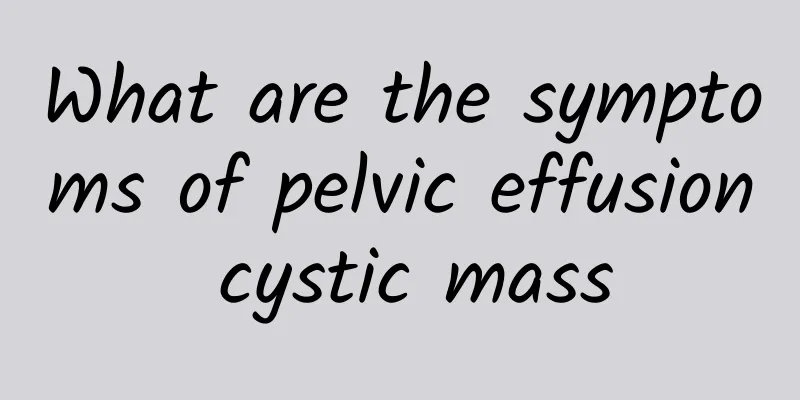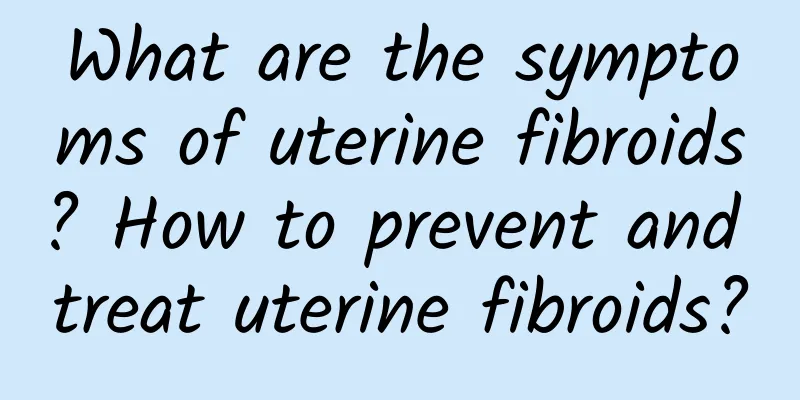What are the symptoms of pelvic effusion cystic mass

|
Symptoms of pelvic effusion and cystic masses vary depending on the severity and specific cause of the disease. Common manifestations include dull pain and tenderness in the lower abdomen, irregular vaginal bleeding, abnormal vaginal discharge, and discomfort in the lumbar region. If the symptoms are obvious or continue to worsen, it is recommended to seek medical attention immediately to determine the cause. Pelvic effusion is often caused by inflammation (such as pelvic inflammatory disease, adnexitis), and the early symptoms include a feeling of heaviness and dull pain in the lower abdomen. In severe cases, it may be accompanied by systemic symptoms such as fever and chills. Cystic masses may be caused by ovarian cysts, hydrosalpinx, etc. Many patients have no obvious symptoms for a long time and are only discovered during physical examinations. If compression is applied to surrounding organs, frequent urination, constipation, or a feeling of swelling in the lower abdomen may occur. When a cystic mass twists or ruptures, severe lower abdominal pain and nausea and vomiting are typical manifestations, which are emergencies and need to be treated as soon as possible. Some patients may have menstrual abnormalities, such as prolonged menstruation, heavy or irregular bleeding. Pelvic effusion is often caused by inflammation (such as pelvic inflammatory disease, adnexitis), and the early symptoms include a feeling of heaviness and dull pain in the lower abdomen. In severe cases, it may be accompanied by systemic symptoms such as fever and chills. Cystic masses may be caused by ovarian cysts, hydrosalpinx, etc. Many patients have no obvious symptoms for a long time and are only discovered during physical examinations. If compression is applied to surrounding organs, frequent urination, constipation, or a feeling of swelling in the lower abdomen may occur. When a cystic mass twists or ruptures, severe lower abdominal pain and nausea and vomiting are typical manifestations, which are emergencies and need to be treated as soon as possible. Some patients may have menstrual abnormalities, such as prolonged menstruation, heavy or irregular bleeding. Maintain a regular schedule, strengthen pelvic care, pay attention to hygiene, avoid spicy food and long periods of sitting to reduce the occurrence of symptoms. If you feel unwell, you should seek medical attention in time for an ultrasound examination to confirm the diagnosis. For the treatment of pelvic effusion, anti-infective drugs such as cephalosporin and metronidazole, or combined with physical therapy to improve symptoms; for cystic masses, conservative observation, medication to adjust hormone levels, or surgical removal of cysts are generally adopted, depending on the specific situation and decided by the doctor. |
<<: Can uterine cysts be prevented?
>>: What is endometriosis? Is it serious?
Recommend
What is the reason for women's light menstrual flow? 5 reasons that cause irregular menstruation
Every woman's physique is different, and the ...
What can't I eat if I have uterine fibroids? Can patients with uterine fibroids take birth control pills?
What can't you eat for uterine fibroids? We m...
What causes ovarian cysts? What can I do?
What causes ovarian cysts? What can I do? Ovarian...
What to do if an incomplete abortion occurs during abortion
Incomplete abortion may occur during artificial a...
What tests should be done for irregular menstruation
Irregular menstruation is a common gynecological ...
Folk remedies for treating adnexitis
Folk remedies for treating adnexitis: Method 1 In...
Eat a lot of delicacies during the Mid-Autumn Festival, but your weight drops sharply? ! 5 Diet Tips to Eat Healthy and Without Burden
The Mid-Autumn Festival is approaching, and we of...
Uncover the three high-risk groups for uterine fibroids
Who are the high-risk groups for uterine fibroids...
6 signs of menopause in women
Women usually experience some signs before menopa...
Can I eat lots of nuts and avocados to lose weight? 7 kinds of food that will make you fat if you are out of control
If you want to lose weight, you must be careful n...
Can Fengyoujing cause miscarriage? Let's find out
I believe we are all familiar with Fengyoujing, w...
Are abortions harmful to women? Women must know the dangers of abortions
According to current research, the number of peop...
Can people with uterine fibroids take protein powder?
Can people with uterine fibroids take protein pow...
Beware! What are the dangers of menstrual disorders in women?
There are many hazards of menstrual disorders. Lo...
Why should I check before doing painless abortion?
Painless abortion is very popular now, and many p...









